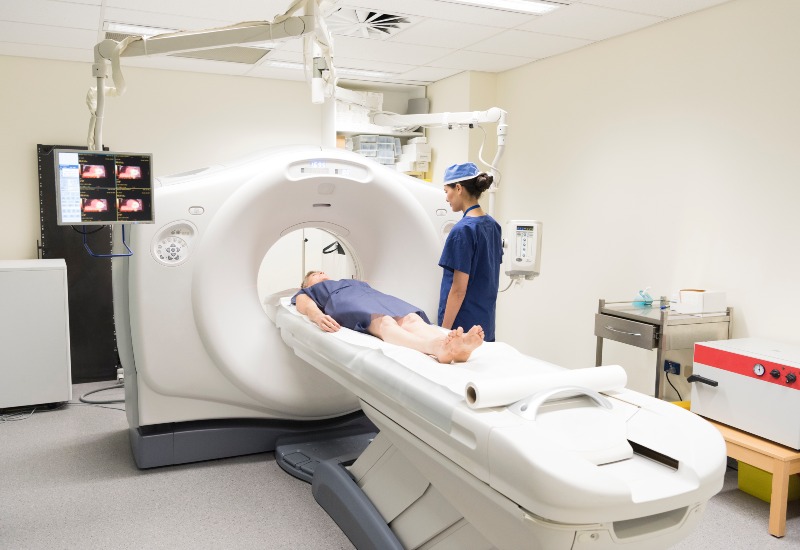Understanding Your PET Scan Results

Understanding the results of a PET scan can be a key part of managing your heart health. Cardiovascular Specialists of New England offers advanced imaging services in New Hampshire to help detect and diagnose cardiovascular issues. A cardiac PET scan is one of the most precise imaging tools available to evaluate blood flow and heart function.
What Is a Cardiac PET Scan?
A cardiac PET (positron emission tomography) scan is a non-invasive imaging test that uses a small amount of radioactive tracer to assess blood flow and cellular function in the heart. This test creates detailed 3D images that allow cardiologists to evaluate areas of reduced blood flow and identify damaged tissue. During the procedure, patients lie on a table while the scanner captures images after the tracer is injected into a vein.
What PET Scan Results Show About Heart Health
PET scan results help determine how well the heart muscle is being supplied with blood. This information is essential for creating a treatment plan tailored to a patient’s specific condition. PET scans can reveal:
- Reduced blood flow to specific areas of the heart
- Presence of scar tissue from a past heart attack
- Viability of heart muscle for procedures like angioplasty or bypass
- Abnormal metabolism indicating damaged or inflamed tissue
Preparing for a Cardiac PET Scan
A cardiac PET scan, or positron emission tomography scan, is a noninvasive imaging test that uses radioactive tracers to create detailed pictures of the heart. It can help identify problems in the heart, such as poor blood flow, disease, damage, and blockages. There is no exercise involved and is usually a 30-minute-long test.
For patients scheduled for a cardiac PET Scan, please visit our Patient Resources on Preparing for a Cardiac PET Scan.
Interpreting Abnormal vs. Normal Findings
Interpreting a PET scan for heart health involves reviewing specific patterns in the images. A normal scan typically shows even tracer distribution, indicating good blood flow and healthy tissue. Understanding the PET scan report and knowing the difference between normal vs. abnormal PET scan results helps clinicians assess heart function and decide the next steps in care. An abnormal scan may show:
- Cold spots or areas with low tracer uptake, suggesting reduced blood flow
- Mismatch patterns between rest and stress scans, indicating reversible ischemia
- Persistent defects, which may signal scar tissue from prior damage
What to Expect After Receiving Results
After your PET scan, the cardiologist will review the imaging and explain the findings. Understanding your PET scan report is important for moving forward with treatment or lifestyle changes. Make sure to ask questions and ask for information on how to read PET scan summaries, especially if anything is unclear. Typically, your provider will schedule a follow-up to discuss the results, and you may be referred for additional heart diagnostic tests if needed. Recommendations may include medication changes, further monitoring, or procedures.
Why Choose Cardiovascular Specialists of New England
Cardiovascular Specialists of New England offers expert care with a patient-focused approach and advanced diagnostic technology. Our team provides thorough evaluations and clear explanations to help patients understand their cardiac PET scan results, and our extensive experience in interpreting PET scans for heart health makes us a trusted provider throughout New Hampshire.
Schedule Your PET Scan Consultation
If you need a cardiac PET scan or have questions about your imaging results, contact Cardiovascular Specialists of New England in New Hampshire. We offer in-office cardiac PET scans at our Londonderry and Manchester locations. Get clarity on your heart health with expert interpretation and compassionate care.
Stay Tuned! More information coming soon!
